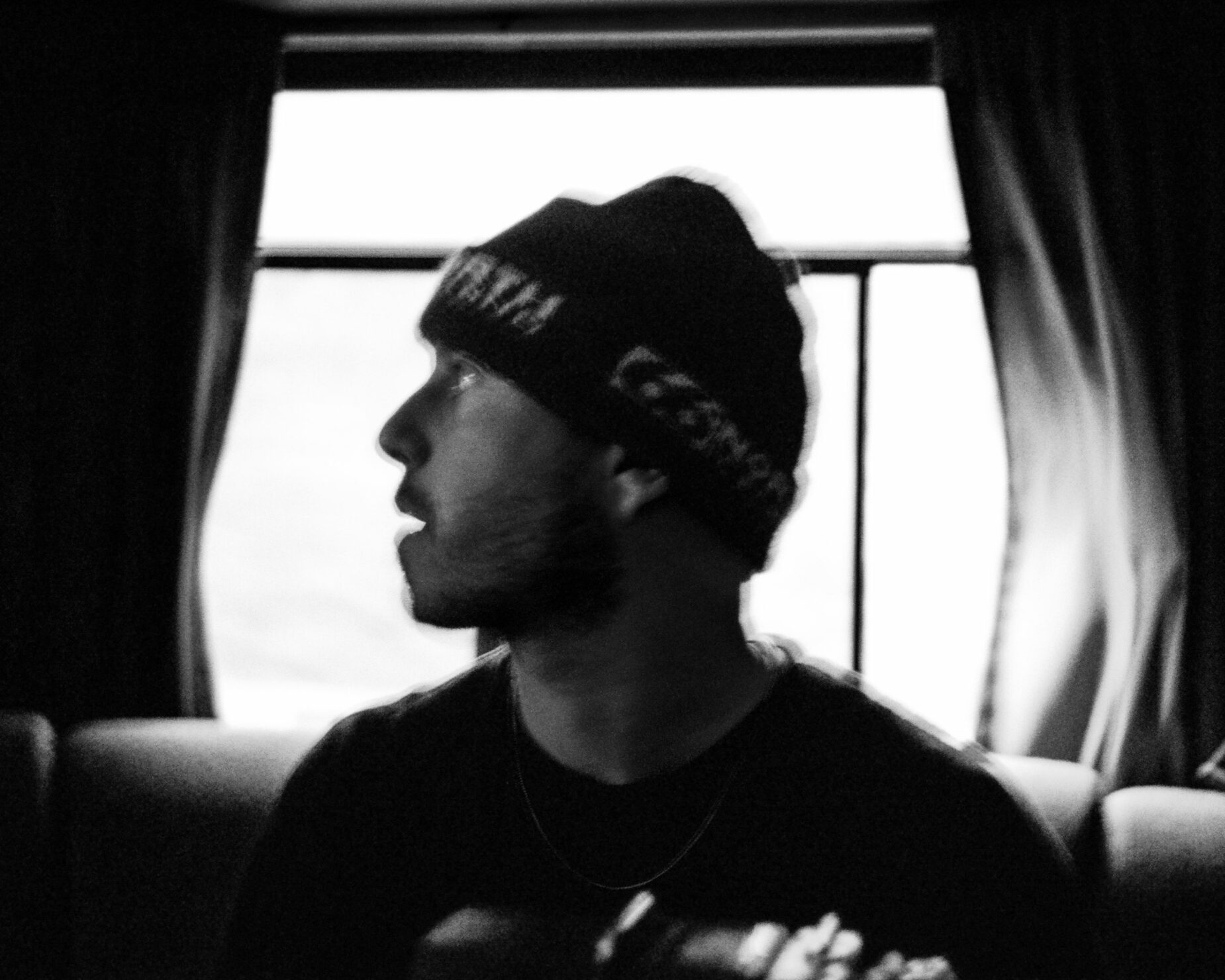
Interview by Java Fernandez
It would be hard to mention Tanner Pendleton without acknowledging the influence his work has had on snowboarding. With his signature style and commitment to promoting core snowboarding, Tanner’s films have rocketed brands into their glory days and shaped many of the best riders of this generation, and the next. With titles such as Crazy Loco, Landline, and Together Forever in his catalog, Tanner’s work has undoubtedly changed the landscape of modern day snowboarding—a view shared by many in his orbit.
Being one of my closest friends, I assumed I knew just about everything there was to know about Tanner until about a year ago, when I discovered there’d always been a part of him I never knew about. Tanner told me that he’s gay. He was the first of his peers in snowboarding to have come out. In fact, he may very well be the first male in the snowboard industry to come out.
We spoke about his experience being gay in this community. Like anything else for Tanner, he navigates it all with thoughtfulness and style.

So you're just about the first person, at least that I know from the snowboard industry, who's come out as gay. How old were you when you first knew?
I first knew when I was really young. I can think back really far and remember being like, “Oh shit, I think I’m gay.” To be honest, it was a confusing road, and not everything is black and white, in my opinion. I also think there's a difference between knowing that you're gay and accepting that you're gay. For me, ever since I was really young, I knew. But it was something that the world told me was bad—so I kept it bottled up in a way, you know? It honestly wasn't until maybe five years ago that I was like, “Okay, yeah, this is me and I'm gay.” Almost as if I needed to come out to myself first and foremost.
Was there a specific moment or something that enabled you to reconcile that with yourself? Or did you just get exhausted with bottling it up?
It was kind of a mix of a lot of things. It became something that was increasingly hard to deny. I had all these feelings, and it just came to a point where I was like, “I can't ignore these anymore.” I was really aware that I was doing myself a huge disservice and harming myself mentally, to be honest. So internally it became more and more vital that I do something about it. But also, around this same time, the world in general, especially our little bubble, was beginning to get a little more open minded. Brian Anderson coming out was really awesome, and even more so, seeing my friend's positive reaction to it was something that I took note of. I’d look at his Instagram posts, scroll through his likes and be like, “Oh shit, this friend liked it, that friend liked it!” Also, the world around this time became more politically charged—I noticed a lot of my friends calling out the injustices of our leaders and taking a firm stance on things like gay rights, among so many other things. So, in a weird way, seeing my friends’ reactions to our fucked up president gave me confidence that things might be okay for me. It all sort of bottlenecked into me just being like, “I'm gonna do this.”
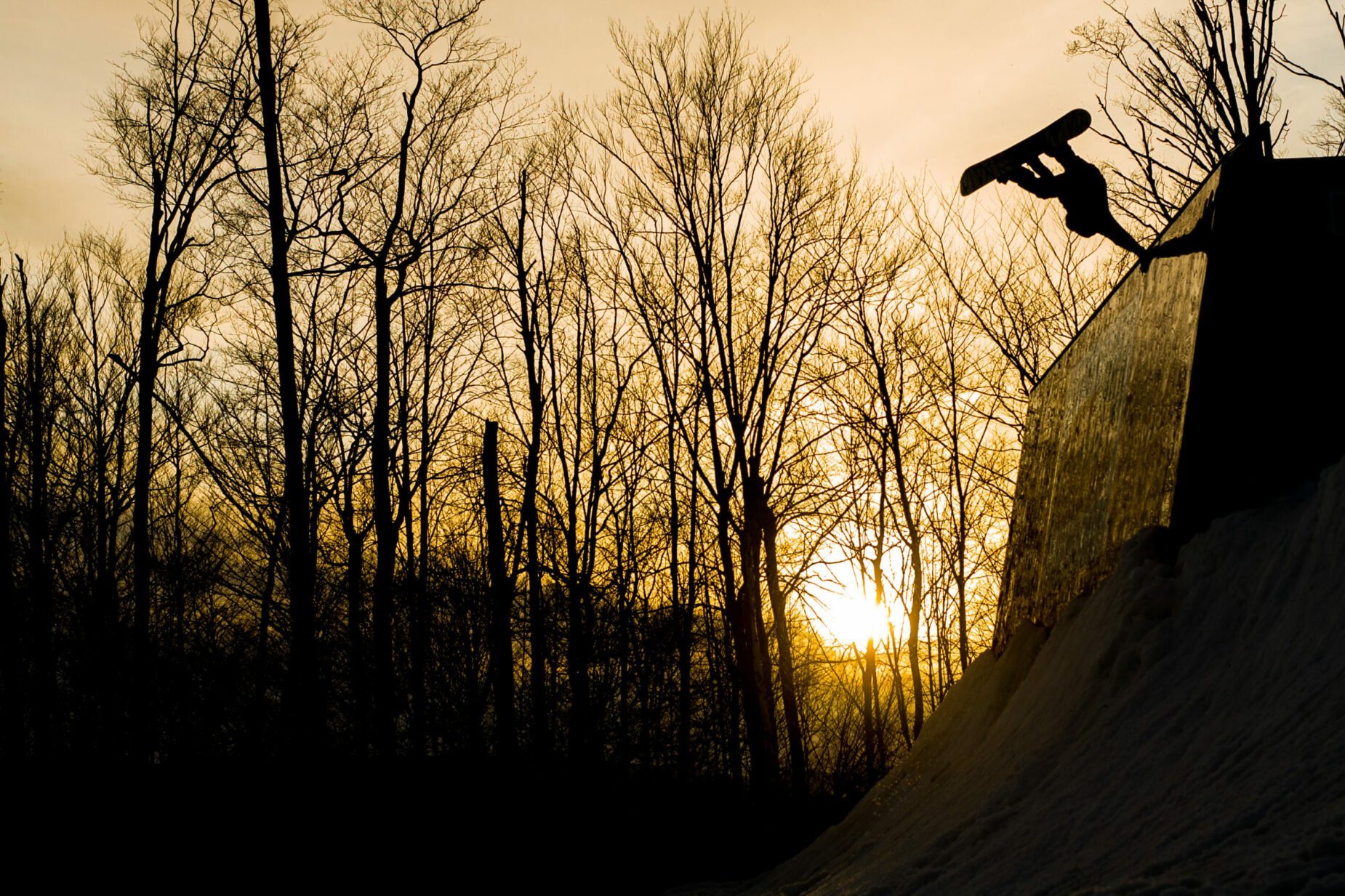
That's cool. Speaking of Brian Anderson, I talked to him this morning and asked if he had things he’d like to ask or contribute to this interview.
That’s insane you got a question from Brian Anderson. That's amazing.
He said he’s really proud of you and that you should hit him up when we’re all back in New York. One question he asked is, “Now that you have come out, do you not have quite as much to worry about when you wake up every day? Do you feel you don't have to ‘do the straight guy thing’ again?”
I think if you're hiding a piece of yourself, then yeah, you have to put on an act to some extent and it's something that you get really good at. I sort of stopped doing that for the most part about a year or so before I came out. I just made a promise to myself and I was like, “Alright, I'm not going to be in a conversation with a bunch of bros and chime in with some shit that I don't really feel.” You know what I mean? But yeah, overall it was such a big weight lifted off my shoulders. And it’s definitely not an immediate fix, but I feel like things get better every day. I feel less and less like I'm putting on an act and being more true to myself.
So, when did you first tell someone, and who was it?
The first person I told was my mom. It's actually kind of a funny story because it very much relates to snowboarding. I made this promise to myself that I would come out as soon as I finished Landline. I was worried that my whole world would fall apart after coming out and that things might unravel in such a way that might not allow me to finish the video. And I really wanted to finish that video! So, in my head I was like, “Alright, as soon as I'm done I’m going to tell some people.” It was funny because while I was editing the video I was really stressed. I think people around me were probably like, “Damn, Tanner’s really stressing about this video shit.” But I was mainly just tripping on this promise I had made to myself. So anyway, I finished the video, drove to my parents' house, and had dinner. I stuck around all awkwardly, and my mom was eventually like, “What's up?” And I just told her.
You talked about having some fears or anxieties after having made a promise to come out after you finished Landline. What do you think you were most worried about?
I think skateboarders and snowboarders in general are very perceptive, and I feel like I've always been really observant of the world around me. Ever since I was really young, it was very clear to me that being gay was not acceptable. Not just amongst snowboarders and skateboarders, but just in general. So I think a lot of my fears and anxieties about coming out were rooted in years and years of observing a world that’s inherently homophobic. When these thoughts are introduced in a young person’s mind it can really take over and grow like an uncontrollable weed. To be honest, I had fully convinced myself that I would lose my friends, my family, my job. I was tripping on everything (laughs).
You were tripping...
Yeah, I've been met with nothing but kindness and love since coming out. It’s even brought me so much closer to a lot of my friends. I think I'm really lucky to have such an awesome family and group of friends. But also over the years, I've sort of gravitated towards a group of people that are more progressive and would be accepting of that. I think it’s really important in someone’s journey to coming out to separate yourself physically and mentally from people that may not accept you or want to harm you. A lot of people don’t have a supportive family or may feel stuck in unhealthy social circles so it’s tough—I feel really lucky.
Was there anyone in particular that you thought wasn't going to be okay with it, but they were?
There are definitely some friends that, over the years, I would hear them say negative things about gay people. But you know, at their core I knew that they were really sweet people—otherwise I think I would have distanced myself from them. It's almost like I knew that their comments were coming from a place of personal insecurity or something, so I let them slide. But nonetheless, coming out to a person like that is definitely scary. But to be honest with you, I didn't really make a point of telling that many people. I kind of just told a handful of people, and I told them, “You don't need to keep this secret.”
I reached out to some people you're close with in case there’s anything I wouldn't think to ask or don't even know to. Jake Kuzyk wanted to ask, “Did burying yourself in your work help you get through any hard times you had with all this? Do you think that you might have used it as a way to prove your own self-worth in some ways?”
Yeah. This is terrible, but my whole life I sort of felt like being gay was a problem. Like it was a defect of mine. To compensate for that, I always felt like I needed to go the extra mile in everything. If I'm snowboarding, I need to be going bigger or faster. And if I'm creating something like a video or whatever, I just need to be so on point that nobody could ever say that I didn't go above and beyond and make the best thing possible. It’s kind of a blessing and a curse, really. It even extends to funny scenarios… Like I’d be dead-tired driving the van full of people on a trip, and I’d be like, “I can't stop driving because I can't be the gay guy that can't drive.” So I would try to prove my self-worth in little ways like that. And I would think to myself, “When I come out, these guys are going to remember, I drove the van the whole way!” So silly looking back on moments like that (laughs). In a way I'm kind of grateful though, because it pushed me to work super hard and receive some forms of validation—which I used to protect myself. For example, I’d be like, “Well, yeah, maybe I'm gay, but I'm a good snowboarder.” And then as I started making videos, I was like “Yeah, maybe I'm gay, but I'm a good filmmaker.” It’s sort of like a shield in a sense. I’m slowly learning that I don’t need those shields to be a good person.
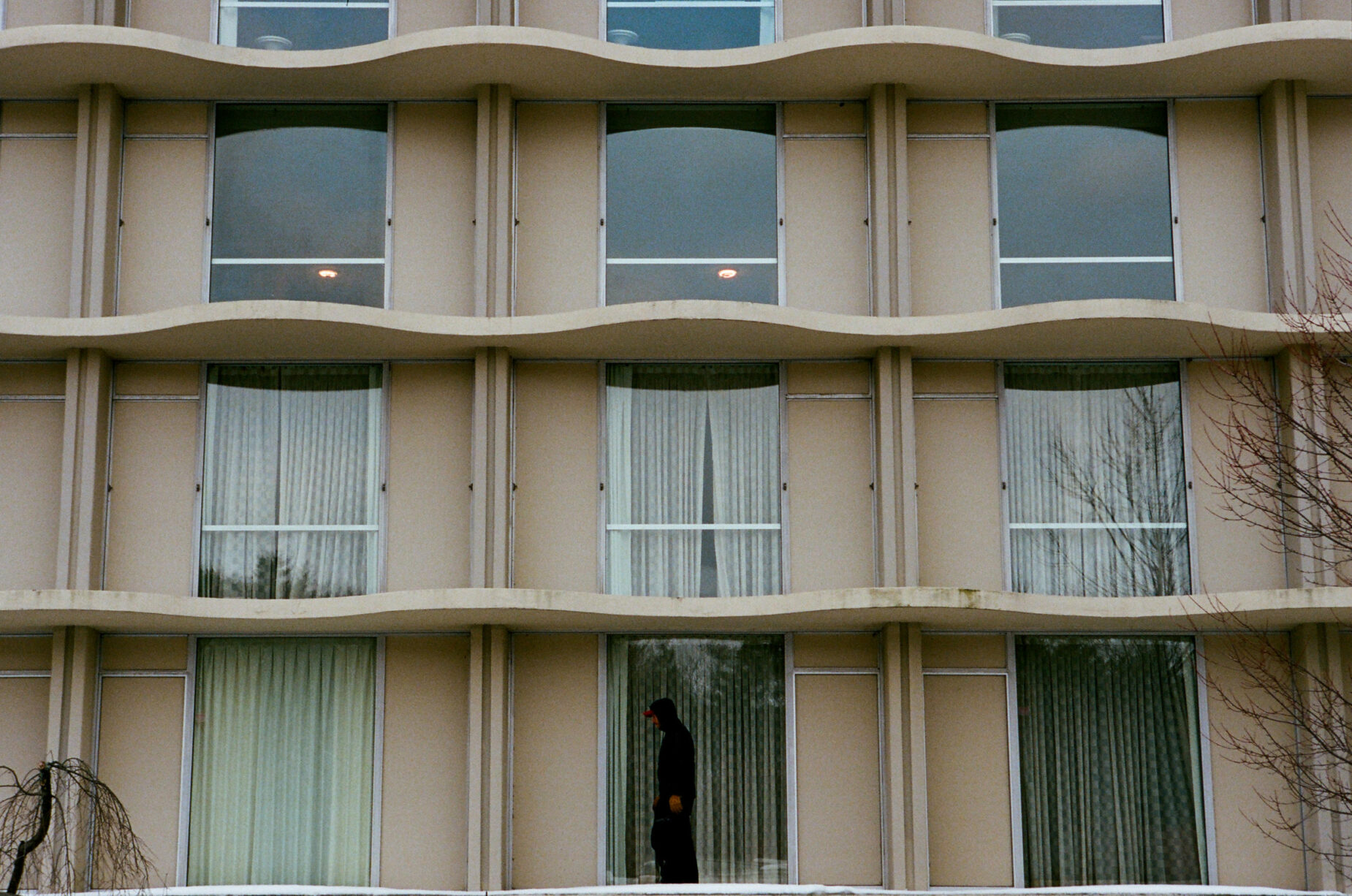
Another question from Brian Anderson: Did you hear the word ‘faggot’ a lot before you came out? Or would you just hear the normal ignorant amount? For me, it was like an alarm going off—you know, things like that and little micro-aggressions.
Yeah, totally–I think as the years went on, and I came to accept myself, it became harder and harder to hear things like that. Even after coming out, I still see and hear things every day that are rooted in homophobia—even from my friends. 99% of the time they mean no harm, and it’s things they don't even realize are hurtful. I get this crazy feeling in my stomach when that happens. It’s really scary how ingrained micro-aggressions are in our society.
What exactly are micro-aggressions, for those that may not know?
Yeah, so a micro-aggression is basically a low-key jab, whether intentional or not, at marginalized groups. An obvious example would be calling something you don’t like “gay.” Or saying something along the lines of, “This spot sucks dick.” Even something as simple as asking a guy, “Do you have a girlfriend?”—assuming their sexuality is considered a micro-aggression. I know some people might think that’s overboard, but if you really think about it, what message does that tell that guy if he is gay? It tells them they are not “normal.” It may not seem like a big deal, but repeated micro-aggressions are actually really harmful and proven to be a leading cause of suicide in LGBTQ people. Also, this idea extends way beyond the LGBTQ community to women, people of color, etc. So I think micro-aggressions are really important to key in on, especially with the audience reading this interview, because they are cultural issues that you can address and make a change for the better now. I think it’s important to educate yourself on the matter and be mindful of what you are putting out in the world.
What might you say to somebody who's scared to come out? It sounds like everyone's situation is really different. Some people don't have the awesome friend network or a really supportive family. What would you say to somebody that is scared to cross that bridge?
I don't think it's possible to understand what a closeted person is going through unless you’ve been through it yourself. So, first and foremost, I would say, “Your struggle is valid, and I’m here for you.” And if they feel like they are in a safe environment I would really encourage them to make steps in that direction. It’s so hard and scary to do, believe me. But there’s a good chance that your friends and family will greet you with open arms. And even if that isn’t the case, as heartbreaking as that would be, you will find a community of people that will love and accept you for who you are. It might even come from somewhere super unexpected, you know? That’s super hard to imagine, but it’s the truth. My DMs are open, by the way, if anyone is reading this and wants to reach out!
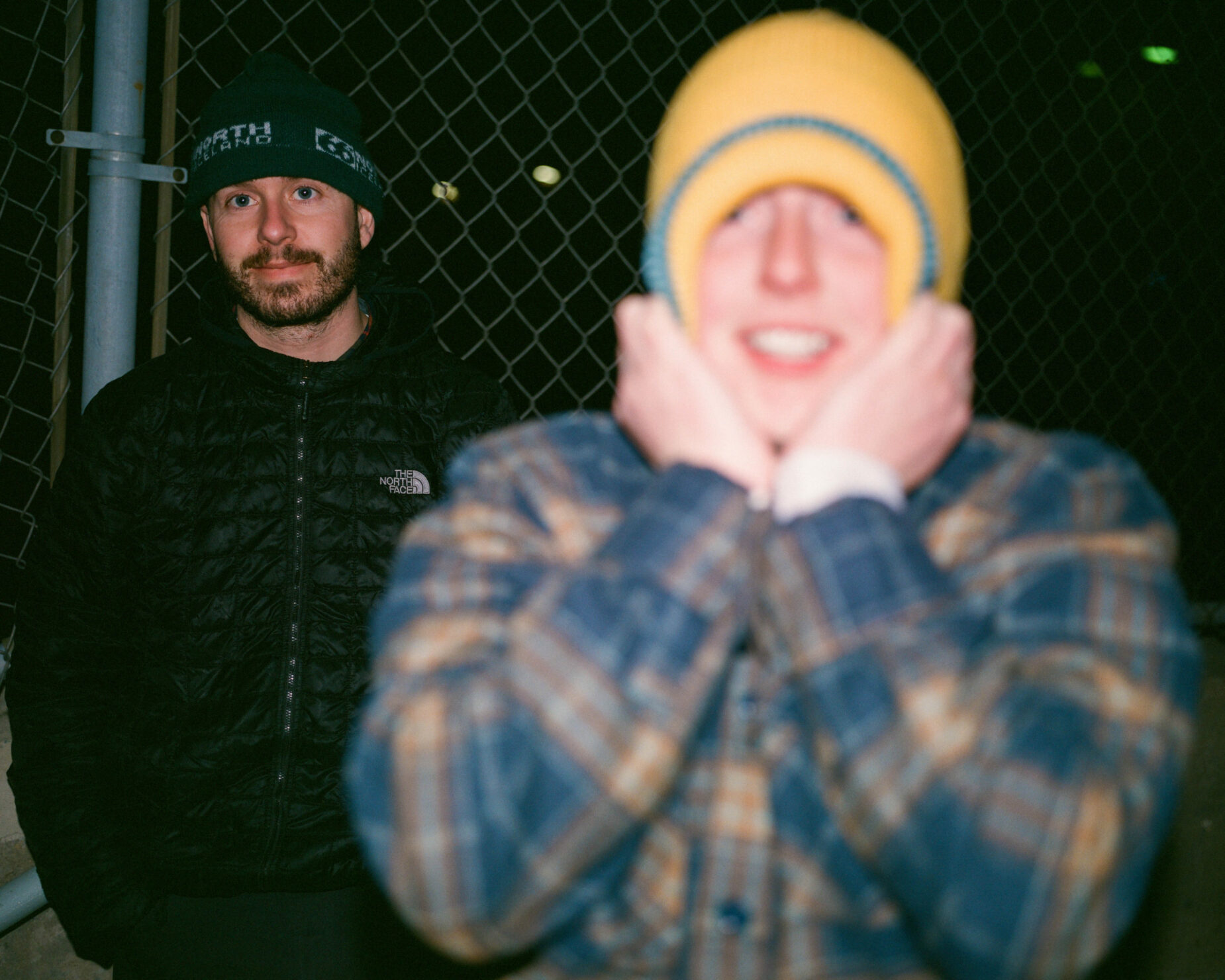
Can you share any difficulties you may have faced as a closeted person?
Yeah… I think a lot of it stems from feeling really ashamed or scared and not having anyone to talk about it with. And the anxiety that comes along with that presents iteself in all sorts of crazy ways. I’ve sort of managed all these things throughout my life—panic attacks, crazy stomach issues, heart palpitations, and so on...Basically if you google ways that anxiety can manifest in your body I’ve experienced every one. Dude actually, even just getting sick all the time, like a lot of my friends call me bubble boy (laughs), but anxiety really messes with your immune system. Your body can’t keep up when you’re constantly putting yourself through the wringer. But really, the thing that’s super wack about being closeted is the fact that you’re not really living. It’s super hard to really connect with people, especially your family and closest friends, if you’re constantly trying to hide a piece of yourself a way. Every move you make is super calculated in an effort not to out yourself. It’s exhausting.
Tell me something that's awesome about being gay.
Just being more and more myself everyday is awesome. I spent my whole life fighting this thing—and now I wouldn't want it any other way. I don’t know, there’s a lot of awesome stuff, really.
Tell me a little bit about gay culture in your experience.
It’s so sick. If you look at the history of music, fashion and art, a lot of it is rooted in gay artists and culture. That's something that I think is really amazing. Prior to coming out, I would look into musicians and artists who were gay and be like, “Damn, this is sick. All of these people are gay, and they're pioneers of the coolest shit that I really like.” They undeniably led the charge for so many amazing things. That really inspired me and gave me confidence. Not to mention the courage they had to be themselves back then.
Does being around other gay people allow you to be more expressive or open than you are when you’re around a bunch of snowboarders?
I feel like I'm the same Tanner, regardless of who I'm with. It’s hard to say whether or not that has to do with 30-plus years of suppressing things… I don't know. But I will say that no matter what kind of environment you're in, whether it's snowboarding, or the neighborhood you grew up in, or the school you attend, society is going to try to put you into a box. If you’re a jock, you dress and act a certain way. If you’re a snowboarder, you dress and act a certain way. It’s just that way the world works. Snowboarding’s box is traditionally quite small—it doesn’t leave much room for true individuality. I think that gay people tend to reject that notion because it's like, “Fuck that. I’ve been in that box and I don’t want to be there anymore. I'm just going to be whatever I want to be.”
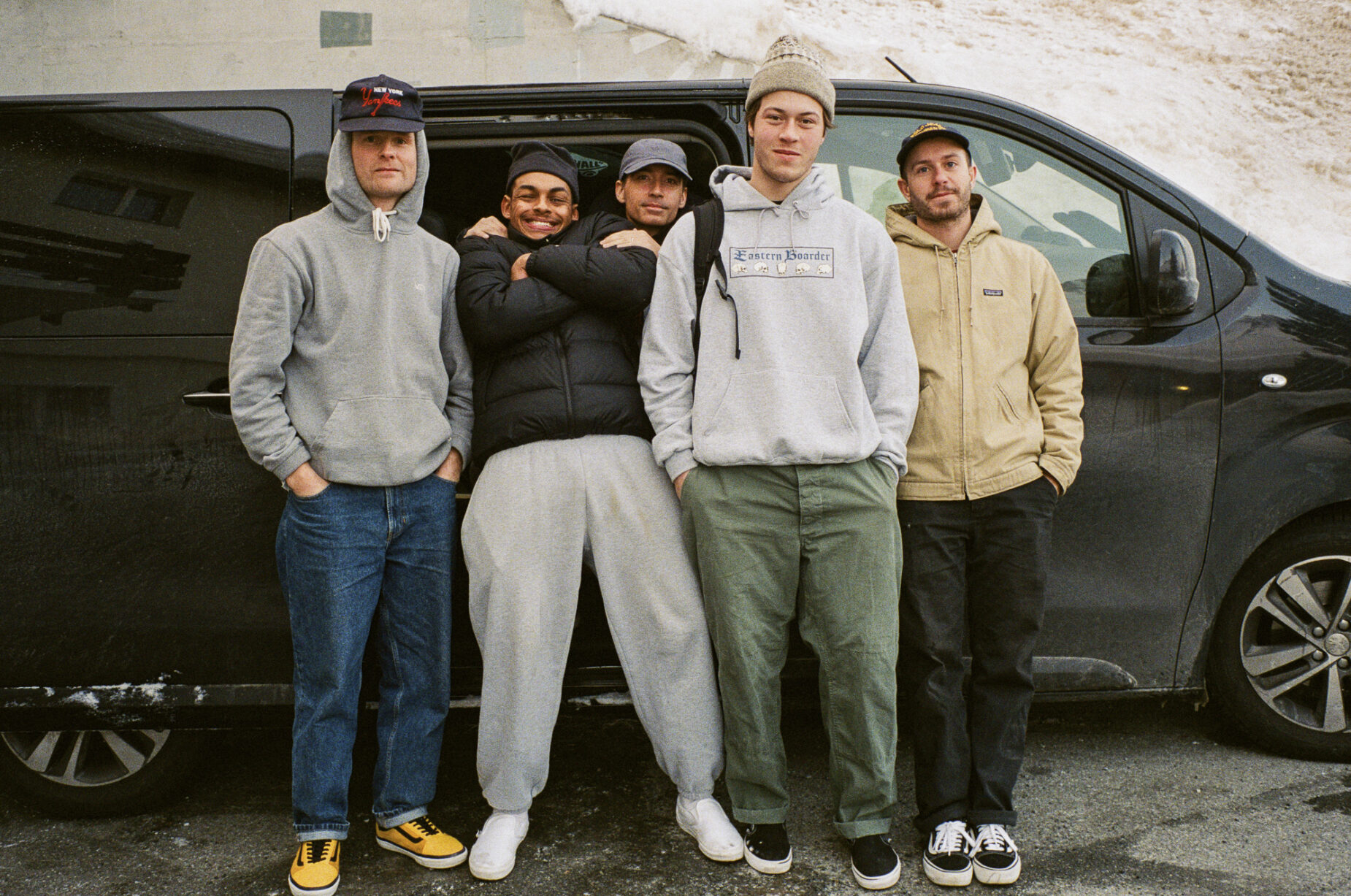
Your life when you’re out snowboarding is so different than your life in New York. Do you feel like you have to juggle different lives? Do you think those lives will converge at some point, or do you enjoy having multiple worlds that you can bounce around in?
I guess sometimes it can feel a little bit like culture shock going back and forth between the two. I really love both of those worlds for different reasons. New York is just the sickest place. I like being a part of this bigger picture that’s so much more inclusive and well-rounded compared to a lot of other places. I love the fact that you can become anonymous despite the fact that you are surrounded by so many people. But I've never really felt like I've lived two lives. Once I started dating guys, I pretty much told my immediate friend group right away. I was only really running around in secrecy for a month or so, and it was really stressful (laughs). The opening party for Being Green was really cool because it was the first time all these worlds really collided for me. My boyfriend was there, my New York friends were there, my family was there, and some of my closest friends from snowboarding were there! It was really special.
Why do you think there are no out male pro snowboarders?
I think it comes down to the fact that if you're closeted, that shit's scary. Like I told you, I was convinced that when I came out my whole world would fall apart. So, if you're a pro snowboarder, and that's your passion, your livelihood—of course you are going to hide something like that away. Especially when it has never been a part of the dialogue in our little world. I think that's all going to change really soon. This week should be exciting! There is a budding community of queer people in snowboarding…
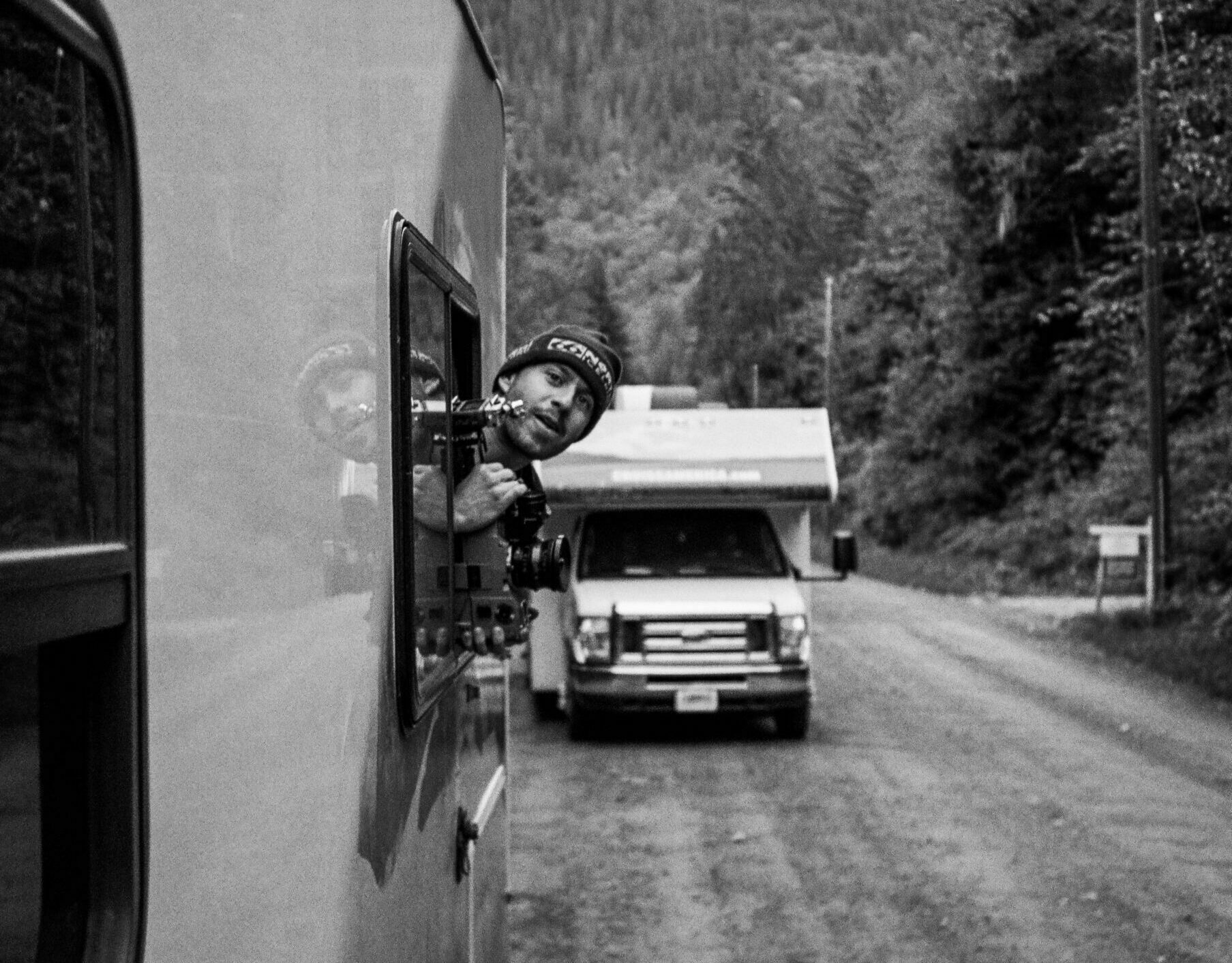
What could change in the snowboard industry that might make it a more inviting and safer place for LGBTQ people?
To me, that's the main reason why I wanted to do this. I think every coming out story is valid and pushes things in the right direction. So far in “extreme sports” the narrative tends to be, “It’s okay to be queer as long as you rip and present as masculine.” I think the more stories we hear, the closer that narrative moves to, “It’s okay to be queer, because it’s okay to be queer!”. We’re seeing this more and more in skating and it’s amazing. So personally, I feel propelled to do something because I feel like it’s a step in the right direction for our little community. If this was a part of the conversation when I was a kid, it would have changed my life. I think the snowboarding community as a whole should really take a step back and ask themselves, “What is it about our community that's keeping people from being themselves? Are we really encouraging and uplifting people’s differences?” This extends beyond LGBTQ+ people and should also include women, people of color, or any marginalized group. Snowboarding needs these people! It’s so stale. Snowboarding also needs an older generation that they can look up to. Bryan Iguchi is someone I really look up to and is a shining example of that! But then you have someone like Terje Haakonsen who consistently says wack shit about gay people, yet the snowboard community at large—specifically his sponsors—doesn’t hold him accountable. This sends a heartbreaking message to gay people in snowboarding, especially those that might be closeted. Just because someone is good at snowboarding, it doesn’t make them a good role model. This aspect has gone largely unconsidered in snowboarding, and it shows. But I think change starts in very small pockets and grows from there. Anyone who has made it this far in the interview likely wants to support this change. So, take some time and educate yourself on the matter, implement change in your local crew or community, and good things will come!
Anything else?
Just want to say thanks to anyone reading. I’m so appreciative for the friends and experiences I’ve had through snowboarding—love you all ☺